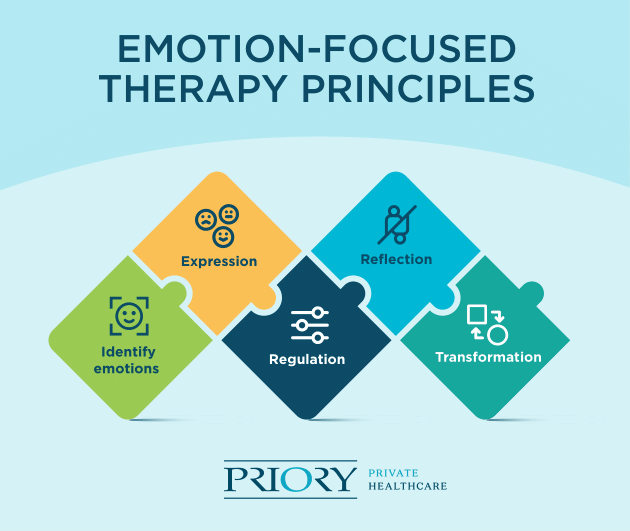A guide to emotion-focused therapy
What EFT is, its core principles and why it can be an effective form of relationship therapy.
If you struggle with understanding and expressing your emotions, emotion-focused therapy (EFT) may help you. EFT is a unique and effective form of therapy that emphasises the role of emotions in our lives.
This article explains EFT's principles, techniques, and how it's different from cognitive behavioural therapy (CBT). Learn about EFT to understand how it can help you, especially in areas like relationships.
Emotion-focused therapy is a therapeutic approach that harnesses the power of emotions to facilitate healing and growth. Dr Leslie Greenberg created EFT in the 1980s. It's based on the premise that emotions greatly influence our decisions and actions.
EFT helps you understand and make sense of your emotions, instead of just changing your thoughts or actions. By understanding your feelings better, you can fix any hidden problems and develop a healthier way of living.
In emotion-focused therapy sessions, you're encouraged to acknowledge and discuss emotions, even if they're complex or hard to express. This process helps you to gain a better understanding of your feelings, helping you to communicate more effectively. An EFT therapist will create a caring setting to identify and experience negative emotions.
EFT helps you to become more aware of your emotions and learn to accept them. You can then use this new information to better regulate emotions, and improve your mental health. Several EFT techniques work towards this goal.

You can summarise the six principles of EFT as:
Emotion-focused therapy sessions are unique and tailored to each person’s needs, but generally, you can expect to work on the following:
CBT and EFT represent two distinct approaches to therapy. CBT is used to help with mental health issues like depression and anxiety. It looks at the connection between thoughts, emotions and actions. The theory states that dysfunctional thinking causes negative emotional and behavioural responses.
CBT therapists work with people to identify and challenge these negative thought patterns. In time, reframing how you process these thoughts can have a positive effect on your emotions and behaviours.
EFT explores the transformation of emotions themselves. It teaches that emotions can impact thoughts and actions, and that understanding and changing emotions is important for wellbeing. EFT therapists guide clients through a process of deep emotional engagement and expression.
EFT lets you explore emotions more freely than CBT. This is helpful for people who feel restricted by CBT's structured approach.
Research has shown that EFT is particularly effective for relationship therapy and counselling. It helps people and couples to understand how their emotions affect their relationships. This can uncover each person's needs and fears.

Partners can improve their communication by learning to share their feelings positively. This can lead to better understanding and caring within the relationship.
EFT also addresses attachment issues. By increasing awareness of a couple's negative patterns, you can foster a stronger emotional bond and resilience. This approach has shown significant success in strengthening the bond between the couple.
EFT offers significant benefits in improving relationship dynamics:
This approach has been instrumental in transforming many couple's relationships, improving resilience and intimacy.
To get started with EFT, you can book a private mental health assessment through our free online portal, Priory Together. This helps us understand your needs and ensure EFT is the right approach for you. If you'd prefer to speak to someone first, you're welcome to give us a call or use our online chat function - we're here to help you begin your road to better mental health in the way that feels right for you. To find out more, including how to register with Priory Together, please visit our private mental health assessments page.